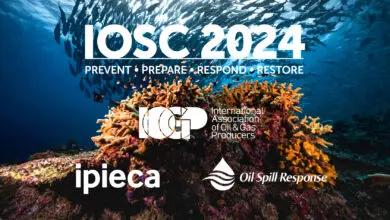
Macondo: 10 years on
On 20th April 2010, a blowout on the Deepwater Horizon, drilling at the Macondo prospect in the Gulf of Mexico, killed 11 crew and caused a major oil spill. The accident and spill forever changed the industry. We will never forget the tragic accident or the 11 people who lost their lives.
In 2010, we promised to change, to become a safer industry. Within weeks – and while the crisis was still underway – IOGP created the Global Industry Response Group (GIRG). Its initial aim was to identify and disseminate the lessons learned the Macondo blowout and other similar events.
During the course of nine months, the GIRG drew on the experience and talents of more than 100 technical experts drawn from over 20 companies. The GIRG’s work covered three core areas:
- Prevention: to improve drilling safety and reduce likelihood of a well control incident
- Intervention: to decrease the time it takes to stop the flow from an uncontrolled well
- Response: to deliver effective oil spill response preparedness and capability
Just over a year after the Macondo blowout, IOGP published the GIRG’s comprehensive set of recommendations. Based on these, the Association proposed that three entities be created to manage and implement the GIRG findings:
- The IOGP Wells Expert Committee (WEC): to analyse well incident report data and share lessons learned, advocate harmonised risk-based standards, communicate good practice, provide a permanent improvement well control teams’ competence and behaviours and promote continued improvement in blow-out preventer (BOP) reliability and efficiency.
- TheSubsea Well Response Project (SWRP): a consortium of operators to investigate, design and deliver improved capping response with a range of equipment for shutting in wells; to design additional hardware for the subsea injection of dispersant; and to further assess the need for and feasibility of global containment solutions.
- The Oil Spill Response Joint Industry Project: to manage the recommendations on oil spill response by developing new recommended practices, improving understanding of oil spill response tools and methodologies and enhancing coordination between key stakeholders internationally.
As a result, our industry now has in place:
- A universal well control incident database
- A BOP Task Force (as part of IOGP’s Safety Committee), which became the initiation point for the BOP reliability database JIP known as RAPID S-53
- Improved human factors training and competences for well operations
- Key international standards for well design and operations management
- Improved global intervention capabilities, with particular emphasis on oil spill management and mitigation
- Mutual aid agreements around the world, within a framework that enables operators to access additional resources in the event of a major oil spill
Measuring success
These initiatives started almost a decade ago. That they are still going strong is indicative of their success. According to IOGP Safety Director Olav Skȧr, “This is due to continuing collaboration within the industry, particularly in the sharing of incidents and lessons learned, training and response preparedness efforts, all of which are documented and publicly aired. Whilst our improvement efforts are ongoing, the commitment to transparency and candour continues to strengthen the industry’s ability to deal with any major incident,” he says.



